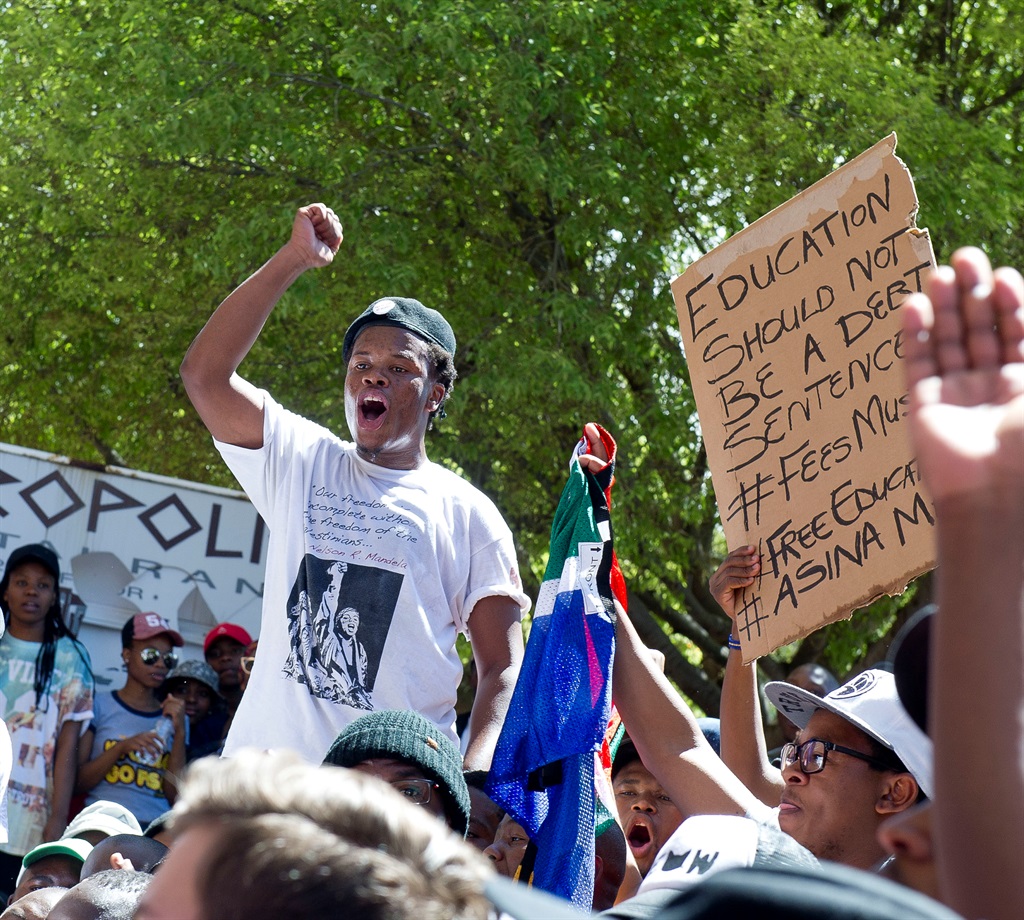
Last week, students barricaded the entrance to the Sefako Makgatho Health Sciences University to highlight bad living conditions and the lack of accommodation at that tertiary institution.
Having access to decent accommodation while studying is important, because there is a direct link between academic performance and living conditions. Visiting some university or college campuses is a shock to the system. Many buildings are in disrepair and some campuses are forthright dirty.
Funding, to keep decent facilities at campuses, is under pressure – especially in the light of the free-education debate.
There is a perception that public tertiary institutions are getting rich from tuition fees and that they can build luxury accommodation blocks at the snap of a finger.
Unfortunately, tuition fees account for about 30% of the total operational budgets of public universities and colleges. The state provides a maximum of 40% of the funding needed by public institutions, and, for the balance, public institutions depend on the private sector and benefactors.
Considering also the expenses to rebuild facilities destroyed by protesters, public institutions simply cannot sustain the upkeep of accommodation block at all times. As the damage of state capture and wastage at state owned enterprises come under more scrutiny, it may come as no surprise that the government could be forced to reduce funding to public tertiary institutions.
The law of foreseen consequences
Public tertiary institutions are caught in a vicious circle. They are pressured by the state’s “massification of education” policies to admit as many students as possible.
In addition, public institutions have no guarantees that the National Student Financial Aid Scheme will pay tuition fees in time. There are still shortfalls on payments from previous academic years that put pressure on the operational budgets of all public institutions.
There is simply little or no funding available to spend on the upgrade of residences. Instead, the wave to privatise student residences is picking up momentum, leaving some students in the lurch. Not all can afford to pay for private residence, so they are forced to consider living arrangements elsewhere or they have to make do what public institutions can offer within their operational constraints.
One-man crusades on lecture tours about free education create expectations that the state will be in a position to make good on unsustainable promises. State capture has already evaporated R100 billion out of Treasury and the tax base is already overburdened.
All of this point to a scenario where public institutions will have to expand on third income stream activities.
Contributions from the private sectors and from benefactors would have to increase. Also, keeping tuition fees low while upgrading residences and other student facilities will become more difficult to achieve.
One of the after-effects of the free education crusades and of state capture could be that tertiary institutions will have to protect their income statements. Only those who can afford to pay for their tuition within the specific timelines demanded by tertiary institutions, could eventually be in a position to graduate. Many first years already fall out after the first semester because they cannot pay for their tuition and because funding bodies such as National Student Financial Aid Scheme are in chaos.
New grounds for protest
Unsustainable tertiary education funding models, as preached by the state, generate unrest. It seems that the government has not learnt any lessons from past protests about not fulfilling promises because the mirage of free education is still a handy toll to buy tick marks at the polls.
New waves of protest mean that more damage could be inflicted on facilities, costing millions to rebuild each time. Insurance premiums do not always cover damage due to public unrest and protests, forcing tertiary institutions do rebuild facilities using funds earmarked for something else.
The government’s policy regarding the “massification of education” is unravelling. The blind insistence to proclaim unsustainable schemes for the sake of ballots or for the sake of scoring personal political points, is bringing many new chickens home to roost.
• Peter van Nieuwenhuizen is chief financial officer of Growth Institute, a private college offering a range of commercial, tourism and hotel management programmes.




 Publications
Publications
 Partners
Partners








